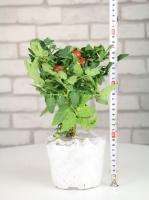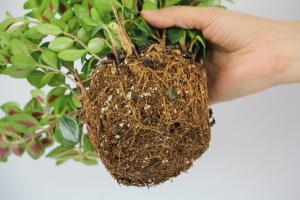Introduction
Adopting a plant-based diet can bring significant health benefits, such as reducing the risk of various chronic diseases, including heart disease, diabetes, and some cancers. However, some people worry that a plant-based diet may not provide them with enough protein. In this article, we will explore how to get enough protein on a plant-based diet.
Understanding Protein
Protein is an essential nutrient that plays an important role in building, maintaining, and repairing tissues in the body. It is made up of amino acids, which are the building blocks of protein. While there are many different types of amino acids, nine of them are considered essential because the body cannot produce them on its own, and they must be obtained from food.
Plant-Based Protein Sources
Contrary to popular belief, plant-based diets can provide enough protein to meet our daily needs. There are many excellent plant-based sources of protein, including:
Lentils, chickpeas, and other legumes
Nuts and seeds, such as almonds, chia seeds, and hemp seeds
Quinoa, brown rice, and other whole grains
Soy products, such as tofu, tempeh, and edamame
Vegetables, such as spinach, broccoli, and peas
Incorporating these foods into your meals can help ensure that you are getting enough protein.
How Much Protein Do You Need?
The amount of protein you need depends on factors such as your age, gender, weight, and activity level. The recommended daily intake of protein is about 0.8 grams per kilogram of body weight for most adults. This means that if you weigh 68 kilograms, you should aim to consume approximately 55 grams of protein per day.
Combining Protein Sources
While individual plant-based foods may not contain as much protein as animal products, you can still get enough protein by combining different protein sources. For example, you could have a vegetable stir-fry with tofu, brown rice, and edamame, or a hearty lentil soup with a side of whole grain bread.
Supplements
If you are concerned about getting enough protein on a plant-based diet, you may consider taking a protein supplement. While it is generally recommended to get your nutrients from whole foods, protein powders made from plant sources, such as pea protein, soy protein, and hemp protein, can be a convenient way to boost your protein intake. However, it is important to choose a high-quality supplement and to speak with a healthcare professional before starting any new supplement regimen.
Conclusion
Getting enough protein on a plant-based diet is not as difficult as it may seem. By incorporating a variety of plant-based protein sources into your meals and paying attention to your overall protein intake, you can easily meet your daily protein needs. Additionally, combining different protein sources and considering supplements can help ensure that you are getting enough protein on a plant-based diet.

 how many times do yo...
how many times do yo... how many planted tre...
how many planted tre... how many pine trees ...
how many pine trees ... how many pecan trees...
how many pecan trees... how many plants comp...
how many plants comp... how many plants can ...
how many plants can ... how many plants and ...
how many plants and ... how many pepper plan...
how many pepper plan...































